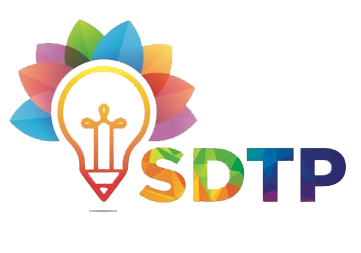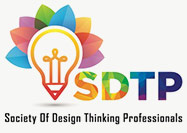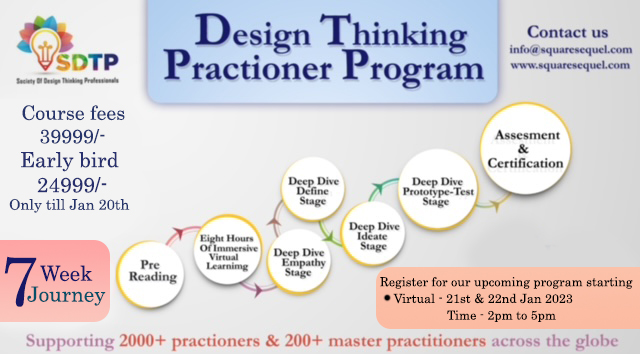Embarking on his professional journey, Vaibhav found himself fortunate to have his Uncle Sivaranjan as a seasoned mentor. Sivaranjan, Vice President of a major corporation, became a beacon of wisdom, offering insights that surpassed the boundaries of textbooks. With Sivaranjan’s guidance, Vaibhav felt equipped and confident as he stepped into the world of professionalism.
After a year in his job, Vaibhav’s company nominated him for a 3-day Design Thinking Program. The initial day of the program left him perplexed, struggling to fully comprehend the significance of Design Thinking in his evolving career. Seeking clarity, he turned to his mentor, Uncle Sivaranjan. Thus far, they have discussed “Overview of Design Thinking” and “Decoding Design Thinking”
Sivaranjan told Vaibhav that though we don’t realize, however, if we dig deeper, Design Thinking dates back to ancient times when its roots were embedded in the Indian Knowledge System. He intends to walk Vaibhav through India’s prosperity and ancient Indian Knowledge System.
Sivaranjan: Vaibhav, do you know, India has always been a treasure trove of wisdom and cultural richness? Our history is woven with knowledge systems that have left a lasting impact globally. Though the Indian knowledge system is a vast topic in itself, I will try to explain it to you in brief.
Vaibhav: Tell me more about it, uncle.
Sivaranjan: The Indian Knowledge System (IKS) concept has gained traction to resurrect our antiquated customs and knowledge. India is on a transformative journey to restructure its education system, grounding it in the deep-rooted knowledge traditions that have shaped our civilization.
Vaibhav: Oh, is it, how wonderful. Please steer me in that direction.
Sivaranjan: The idea is to reconnect with our heritage, to acknowledge and integrate the wealth of knowledge we’ve inherited. It’s not just about looking back; it’s about building a future that draws on the strengths of our past.
Vaibhav: That’s fascinating. How do you think it aligns with our global standing?
Sivaranjan: It’s about showcasing the affluence of our intellectual heritage, Vaibhav. By embracing and revitalizing our knowledge systems, we contribute not just to our national identity but also to the global dialogue on wisdom, innovation, and holistic living.
Vaibhav: I’m intrigued, Uncle. There is so much about our heritage that we can explore and value.
Sivaranjan: Indeed, Vaibhav. Our journey into the Indian Knowledge System is not just a stroll through the past; it’s a dynamic exploration that has the potential to shape our present and future. Let’s delve deeper into this incredible trail of knowledge together.
India’s Intellectual Legacy: Prosperity and Ancient Indian Knowledge System
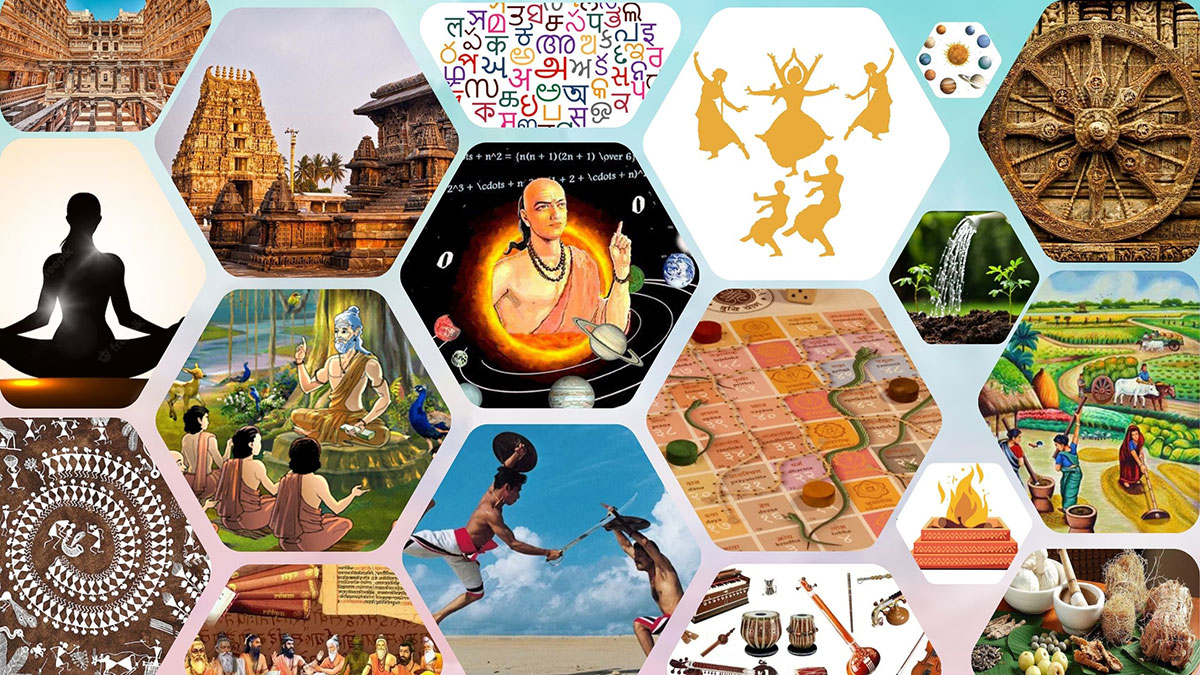
Sivaranjan: Vaibhav, when we explore India’s prosperity throughout history, it’s like peeling back layers of a profound framework. The prosperity wasn’t just material; it was a comprehensive development that touched both the tangible and intangible aspects of human life.
Vaibhav: It’s fascinating, Uncle. I’ve read about how India is a hub for seekers of knowledge and skills from all over the world. What made it so attractive?
Sivaranjan: India’s allure wasn’t just in its landscapes, Vaibhav. It was and still is “Vasudev Kuthumbhkam,” grounded in the belief that the world is one family. The openness, generosity, and inclusiveness of Indian society created a unique example globally. People from all corners of the world were welcomed with open arms.
Vaibhav: That’s quite remarkable. How did this cultural ethos contribute to India’s prosperity?
Sivaranjan: If we delve into it further, we can continue to have a conversation for four straight days only on this topic. In summary, it was a foundation for mutual learning and growth. India became a melting pot of ideas, philosophies, and traditions. This cultural richness, coupled with ancient knowledge systems, played a pivotal role in shaping India’s identity and contributing to its prosperity. Throughout time, a diverse influx of people from around the world chose to make India their home, creating a blend of ideas, philosophies, traditions, rituals, and beliefs. This cultural fusion turned India into a vibrant and multicultural society.
Vaibhav: Speaking of ancient knowledge, what role did the Vedic literature play in all this?
Sivaranjan: Ah, the Vedic literature, Vaibhav, is a treasure trove. Comprising the Rigveda, Samaveda, Yajurveda, and Atharvaveda, these texts aren’t just spiritual scriptures; they house a vast knowledge repository. From philosophy to science, mathematics to linguistics, astronomy, and more, the Vedas laid the groundwork for various disciplines that shaped India’s intellectual landscape.
Vaibhav: It’s incredible how these ancient texts encompassed such diverse fields. It seems like they were the foundation of India’s intellectual prosperity.
Sivaranjan: Absolutely, Vaibhav. The roots run deep, and understanding this connection between India’s ancient knowledge and prosperity is the key to appreciating the legacy we inherit.
Sivaranjan: Now, let’s move on to the components of IKS.
The Essence of the Indian Knowledge System

Sivaranjan: Vaibhav, the heritage of ancient Indian knowledge emerges as a profound guiding principle, fascinating in its potential to shape our corporate landscape. As we recognize the impact of this heritage, we open doors to a new era where ancient wisdom becomes a cornerstone in sculpting the future of corporate excellence.
Vaibhav: What exactly does this heritage entail, Uncle Siva?
Sivaranjan: Well, Vaibhav, the Indian Knowledge Systems is a legacy woven from Jnan, Vignan, and Jeevan Darshan. These aren’t just abstract concepts; they’ve evolved from centuries of experience, observation, experimentation, and rigorous analysis.
Vaibhav: What roles do they play in our knowledge system?
Sivaranjan: Each of these components brings a unique perspective to the table.
Jnan, a crucial component of the Indian Knowledge System, embodies theoretical knowledge. It encapsulates the profound understanding derived from scriptures, philosophical texts, and academic pursuits, forming the theoretical foundation that underpins various disciplines.
Vignan, it delves into applied knowledge and science, emphasizing the practical application of theoretical wisdom. It bridges the gap between theory and real-world implementation, fostering innovation and progress.
Jeevan Darshan, the third element, embraces the philosophy of life. Rooted in ancient wisdom, it provides a holistic framework guiding individuals towards a balanced, purposeful, and meaningful existence, connecting the theoretical and applied realms with life’s profound philosophy.
Together, they create a multifold knowledge system that’s not just comprehensive but deeply rooted in our cultural ethos.
Vaibhav: It’s like a holistic approach to knowledge, incorporating theory, application, and philosophy.
Sivaranjan: Precisely, Vaibhav. It’s about embracing the full spectrum of human understanding, from the theoretical foundations to their practical applications, all interwoven with the philosophical underpinnings that guide our way of life. Understanding and appreciating these components not only enriches our educational system but also provides us with a profound perspective on life itself.
Relevance of the Indian Knowledge System in Today’s World
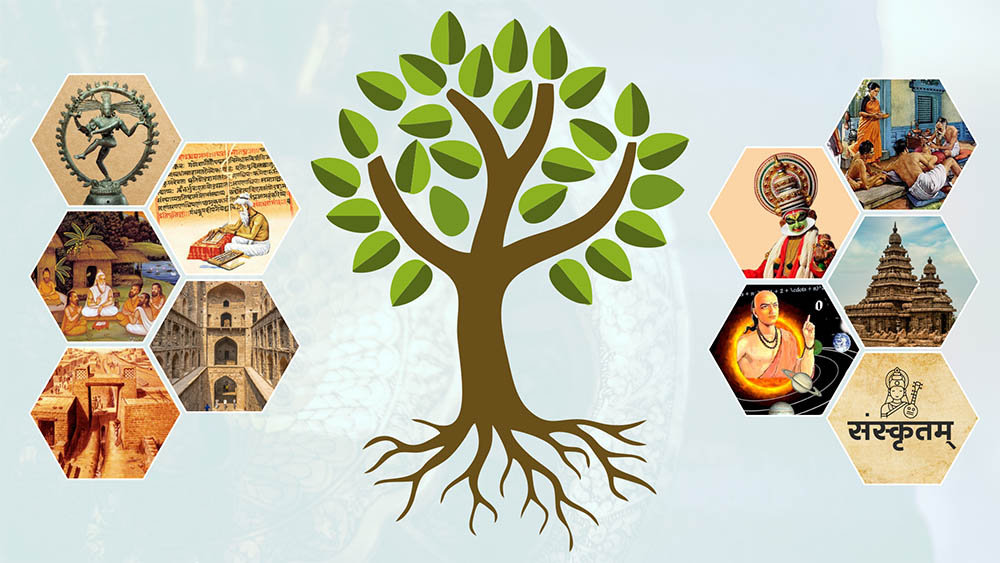
Sivaranjan: Vaibhav, as we explore the Indian Knowledge System, it’s not merely a journey into the past but a relevant guide for navigating the complexities of today’s world.
Vaibhav: How so, Uncle Sivaranjan?
Sivaranjan: The principles embedded in the Indian Knowledge System offer a timeless wisdom applicable to contemporary challenges. It’s about recognizing the profound relevance of our ancient traditions in addressing modern concerns, be it sustainability, well-being, ethical governance, or fostering innovation.
Vaibhav: So, it’s not just about history, but about drawing on this wisdom for a more meaningful present and future?
Sivaranjan: Exactly, Vaibhav. The Indian Knowledge System is a living legacy, offering insights that can shape our choices, policies, and innovations in the dynamic landscape of today’s interconnected world. Let’s look at how this wisdom can guide us in navigating the complexities of the present age.
Global Wisdom Repository
IKS offers a timeless repository of knowledge applicable to diverse global challenges, fostering a deeper understanding of the human experience.
Sustainability Principles
Learning from IKS, emphasis on sustainable practices becomes paramount, aligning with contemporary concerns about ecological balance and responsible resource utilization.
Holistic Well-being
IKS advocates a holistic approach to health, encompassing physical, mental, and spiritual well-being, resonating with the modern focus on comprehensive healthcare.
Ethical Governance
The principles embedded in IKS, such as dharma and righteous living, provide valuable insights for ethical governance, promoting integrity and justice in contemporary leadership.
Innovation and Adaptability
IKS encourages innovation through a harmonious integration of traditional wisdom and modern advancements, fostering adaptability and resilience in the face of rapid change.
Cultural Diversity Appreciation
IKS celebrates cultural diversity and inclusivity, offering lessons in coexistence and collaboration crucial in today’s interconnected global society.
The Transformative Potential of the Indian Knowledge System
Sivaranjan: Vaibhav, envision this – the implementation of the Indian Knowledge System, not only transforming education but breathing new life into our psyche and way of living.
Vaibhav: How does that work, Uncle Sivaranjan?
Sivaranjan: Picture this integration – fundamental Indian thought, knowledge, tradition, art, skills, craftsmanship, and management woven into various sectors. It’s not just a transformation; it’s a rejuvenation. We’re looking at a potential of over 5 million jobs, boosting India’s self-esteem.
Challenges and Opportunities
Sivaranjan: However, Vaibhav, the challenge lies in the presentation – translating ancient knowledge into a modern format. Comprehensive research on texts like the Bhagavad Gita is crucial.
Vaibhav: So, it’s about bridging the gap between ancient wisdom and the modern world?
Sivaranjan: Precisely. Effectively harnessing the Indian Knowledge System can offer valuable insights not just for us but for the entire world. It’s about shaping behavior and propelling future growth on a global scale.
Sivaranjan: Vaibhav, as we conclude, India’s pursuit of revitalization through the Indian Knowledge System is not just a vision but a tangible force steering the country towards significant change.
Vaibhav: How do you see this transformation, Uncle Siva?
Sivaranjan: The cornerstone lies in the education sector, Vaibhav. The Indian Knowledge System, guiding this metamorphosis, is not just restructuring the curriculum; it’s ushering in a new era of mental freedom and intellectual empowerment.
Vaibhav: So, it’s not just about education; it’s more than that.
Sivaranjan: Exactly, Vaibhav. As India progresses, our ancient wisdom isn’t confined to textbooks; it finds practical application. It’s not just for our citizens but a contribution to the global community.
Sivaranjan: As we progress in this journey, you will realize Vaibhav, that the more you will understand and explore your journey of learning IKS, the easier it will be for you to draw parallels with Design Thinking. So, let’s keep this conversation here and I am keen to understand your perspective when you see Design Thinking with which you can draw a parallel. Next, we’ll talk about finding the roots of Design Thinking in the Ancient Indian Knowledge System. It’s a captivating connection between our ancient wisdom and contemporary innovation.
https://www.bhishmaiks.org/post/indian-knowledge-system-iks-revitalizing-india-in-few-decades
https://iksindia.org/images/slider/8.jpg
Written By: Dr. Jimmy Jain and Pavan Valluri
Edited By: Afreen Fatima
Society of Design Thinking Professionals
